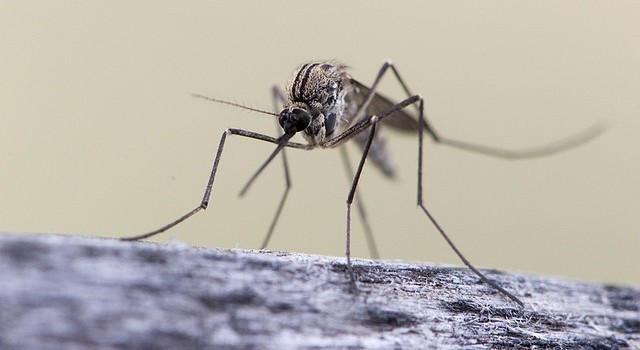Mosquitoes has been a problem for a very long time, carriers of disease infecting a lot of people around the world. For the past decades disease fro mosquitoes has been a problem like malaria and other deadly disease. With this new era we are now apart of a lot of scietific studies and experimants has been done. Emagine those deadly mosquitoes made more deadly as they mutated or modified geneticaly. See below what this genetically modified mosquitoes can cause.
Chikungunya and dengue are tropical diseases spread by Aedes mosquitoes. Infection with the chikungunya virus leads to fever and joint pain that can be severe, although it rarely causes death.
GM Mosquitoes May Be Released in the Florida Keys in 2015
Unfortunately, biotech company Oxitec and the Florida Keys Mosquito Control District (FKMCD) are moving forward on their plan to introduce genetically modified (GM) mosquitoes to the area in an attempt to stop the spread of these tropical diseases.
Problems with GM Mosquitoes
One of the first questions that comes to mind is, what happens if one of the GM mosquitoes bites you? Will their GM DNA be injected into your arm or leg? Oxitec has counteracted this objection by stating they only plan to release male mosquitoes, which don’t bite.
Also, the mosquitoes haven’t been around long enough to assume there will be no impacts. There are several glaring problems with assuming these GM bugs are safe for the human population. For starters:
- The potential exists for these genes, which hop from one place to another, to infect human blood by finding entry through skin lesions or inhaled dust. Such transmission could potentially wreak havoc with the human genome by creating “insertion mutations” and other unpredictable types of DNA damage.
- According to Alfred Handler, a geneticist at the Agriculture Department in Hawaii, mosquitoes can develop resistance to the lethal gene and might then be released inadvertently.
Florida Keys Residents Slated to Become the Next Guinea Pigs
Once the locals got wind of this, they responded with a fair amount of public outrage—and rightly so! But it didn't stop there. Oxitec subsequently released their frankenskeeters in Malaysia, Brazil, Panama, India, Singapore, Thailand, and Vietnam. The Institute for Science in Society (ISIS) wrote at the time of the Cayman Island release:
“ …the current release of terminator male mosquitoes on Cayman Island is a risky strategy. To add insult on injury, there has been no warnings issued to tourists, and most residents on the Island do not appear to have given informed consent to be exposed to the GM male mosquitoes, in blatant violation of human rights with regard to human experimentation.
Too Late: GM Insects Released Before Their Full Consequences Are Understood
If you’re surprised to learn that GM mosquitoes have already been released into the wild, you might be shocked to know that Oxitec is also the creator of genetically modified pink bollworm moths, and swarms of this creature have already been unleashed over the fields of Arizona in an effort to overtake natural bollworm populations, which are a pest.
They wrote:
“The effects may occur in two phases: a transitory phase when the focal population changes in density, and a steady state phase when it reaches a new, constant density… Our methodology reveals many potential effects in each phase, perhaps most notably those dealing with immunity in the transitory phase, and with pathogen and vector evolution in the steady state phase. Importantly, this framework identifies knowledge gaps in mosquito ecology.
Sign the Petition to Keep GM Mosquitoes Out of the Florida Keys
There are far more questions than answers surrounding GM insects at this time, and the FDA should not allow this type of reckless experimentation to take place. As a Change.org petition explains:
“Nearly all experiments with genetically-modified crops have eventually resulted in unintended consequences: superweeds more resistant to herbicides, mutated and resistant insects also collateral damage to ecosystems. A recent news story reported that the monarch butterfly population is down by half in areas where Roundup Ready GM crops are doused with ultra-high levels of herbicides that wipe out the monarch's favorite milkweed plant.
When a Purdue University computer model tracked the effects of releasing just 60 “Frankenfish” (genetically modified salmon) into a population of 60,000, there was a complete extinction of the normal fish in just 40 fish generations… The Change.org petition is calling for the FDA to reject the release of GM mosquitoes in the Florida Keys. You can sign the petition now to voice your support.
![]() That’s not to say there are no concerns. For example, it’s possible some female mosquitoes could be accidentally released and bite humans. Oxitec says even if that happens, there’s no evidence that would result in the transfer of modified DNA, or that such a thing would harm anyone.
That’s not to say there are no concerns. For example, it’s possible some female mosquitoes could be accidentally released and bite humans. Oxitec says even if that happens, there’s no evidence that would result in the transfer of modified DNA, or that such a thing would harm anyone.
Please Read this Article at Articles.Mercola.com
Photo Source: D. Sikes





Leave a Reply